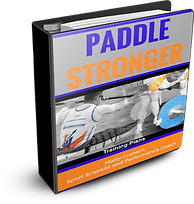

Winter Indoor Training
The weather in Dunedin over the last few weeks have been shocking and I have been spending quite a lot of time on the wind trainer. After...


Winter Training Focus
With the days growing shorter and the temperature dropping like a stone it is clear that winter is here. Winter provides a great...
Spin Small Gears or Grind Big Gears?
In this video we take a look at the question of if you should 'spin small gears or grind big gears'. To answer this we need to dive into...
Recovery days
Welcome to the sixth edition of Whiteboard Wednesday. In this video we take a look at the best way to structure your recovery days to...


A-Z of making your own sports drink
The components that make up the nuts and bolts of sports drink include; Water, Carbohydrate and sometimes protein and sodium (salt). Once...


High and Low Heart Rates During Training
Have you ever noticed that some days when you head out training your heart rate in through the roof and you hardly feel like you are...


Pace Yourself
In this video we take a look at pacing through out the season so you arrive at your key race/ event in peak physical and mental...


GODZone 2014: Milan's report
Team CHIMPANZEE BAR Written by: Milan Brodina “An experience does not need to be enjoyable. It just has to be memorable…” KAIKOURA – a...


Training with NO FOOD
‘Glycogen Manipulation Training (GMT)’ The human body primarily stores the carbohydrates (CHO) we eat as muscle and liver glycogen....


Active Recovery: Are you doing it right?
Recovery is one of the most important training principles, yet it is the one that endurance athletes tend to neglect the most (Check out...








.png)



.png)








